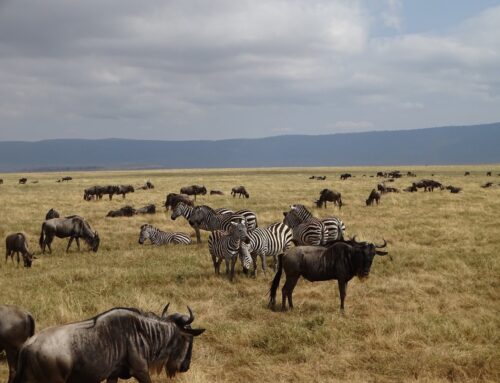In a move that stunned the leaders of the World Wildlife Federation, Chinese officials have released new rules, watering down their 1993 ban on Rhino horn and Tiger bones.
Citing that Rhinos and Tigers bred in captivity could be used for further scientific research, medical treatments, cultural exchanges and education, China has reduced the previous all out ban that forbid any dealings in Tiger parts and Rhino horn.
However, the WWF has started to immediately push back against the decision, stating in a press release that such changes to the ban would have “devastating consequences globally”.
“Even if restricted to antiques and use in hospitals, this trade would increase confusion by consumers and law enforcers as to which products are and are not legal and would likely expand the markets for other tiger and rhino products,” WWF said.
Justifying the decision, Chinese officials have pointed to traditional Chinese medicine practices that have incorporated the use of Rhino and Tiger parts for generations, although experts say other substances could be substituted for the endangered species.
Blood Lions, a group of filmmakers and conservationist aimed at preventing the killing and distribution of wild animals said in an official statement- “legal trade promotes demand and a parallel illegal market”, taking aim at the Chinese government’s justification by saying- “Although ‘Tiger bone wine’ has been used in TCM for 1000 years, there are no proven medicinal properties.”
While China stands by their decision, groups such as the WWF and the AWF feel that such a degradation of the existing ban could undermine conservation and anti-poaching efforts that have been made globally by their respective groups.
Time will be the ultimately factor in revealing whether this decision furthers the threat to wildlife around the globe, but according to the world’s conservation groups, the future seems bleak in the light of these recent events.
Learn more about conservation of other species in our other blog articles.
Click the button below to talk to one of our Safari Specialists!
Recent Posts
In a move that stunned the leaders of the World Wildlife Federation, Chinese officials have released new rules, watering down their 1993 ban on Rhino horn and Tiger bones.
Citing that Rhinos and Tigers bred in captivity could be used for further scientific research, medical treatments, cultural exchanges and education, China has reduced the previous all out ban that forbid any dealings in Tiger parts and Rhino horn.
However, the WWF has started to immediately push back against the decision, stating in a press release that such changes to the ban would have “devastating consequences globally”.
“Even if restricted to antiques and use in hospitals, this trade would increase confusion by consumers and law enforcers as to which products are and are not legal and would likely expand the markets for other tiger and rhino products,” WWF said.
Justifying the decision, Chinese officials have pointed to traditional Chinese medicine practices that have incorporated the use of Rhino and Tiger parts for generations, although experts say other substances could be substituted for the endangered species.
Blood Lions, a group of filmmakers and conservationist aimed at preventing the killing and distribution of wild animals said in an official statement- “legal trade promotes demand and a parallel illegal market”, taking aim at the Chinese government’s justification by saying- “Although ‘Tiger bone wine’ has been used in TCM for 1000 years, there are no proven medicinal properties.”
While China stands by their decision, groups such as the WWF and the AWF feel that such a degradation of the existing ban could undermine conservation and anti-poaching efforts that have been made globally by their respective groups.
Time will be the ultimately factor in revealing whether this decision furthers the threat to wildlife around the globe, but according to the world’s conservation groups, the future seems bleak in the light of these recent events.
Learn more about conservation of other species in our other blog articles.







